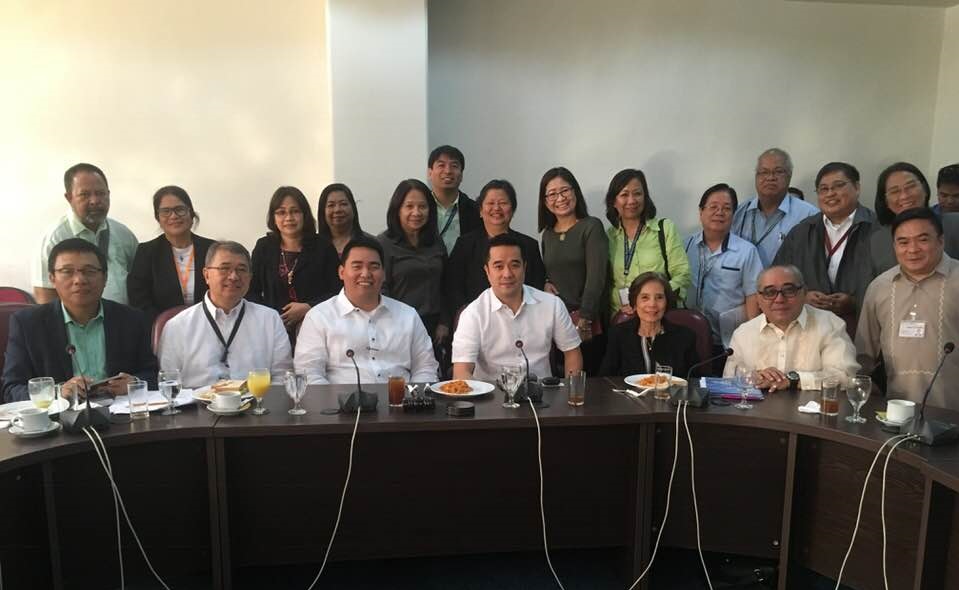
Representatives Xavier Jesus Romualdo and Francis Gerald Abaya (seated, 3rd and 4th from left, respectively), DOST Secretary Fortunato Dela Peña (seated, 2nd from left), DOE Assistant Secretary Atty. Gerardo Erquiza Jr. (seated, extreme left), PNRI Director Dr. Carlo Arcilla (seated, extreme right), former PNRI Director Dr. Alumanda Dela Rosa (seated, 2nd from right) and NPC Asset Preservation Manager Engr. Mauro Marcelo (2nd row, 4th from right) during the joint committee meeting of the House Committees on Government Reorganization and Science and Technology.
Substitute Bill for Nuclear Law Approved by House Joint Committee
A consolidated substitute bill for a Comprehensive Nuclear Law was recently approved at the joint committee meetings by the House Committees on Government Reorganization and Science and Technology on November 21, 2017.
The substitute bill, entitled “An Act Providing for a Comprehensive Nuclear Regulatory Framework, Creating for the Purpose, the Philippine Nuclear Regulatory Commission, and Appropriating Funds Therefor”, otherwise known as the Comprehensive Nuclear Regulation Act, is the consolidated version of seven separate bills previously filed at the House of Representatives.
The bill pushes for the creation of a unified independent regulatory body consistent with international standards for the regulation of all activities and facilities involving sources of ionizing radiation.
Currently, the Philippines has two regulatory bodies dealing with ionizing radiation: the Philippine Nuclear Research Institute (PNRI) under the Department of Science and Technology (DOST) which regulates nuclear and radioactive materials, and the Center for Device Regulation, Radiation Health and Research (CDRRHR) under the Food and Drug Administration (FDA) of the Department of Health (DOH), which regulates x-rays and devices producing electrically-generated radiation. In addition, the concurrent nuclear regulatory and promotional functions of the PNRI is potentially conflicted and not in agreement with international nuclear best practices.
Officials from the DOST, Department of Energy (DOE), the Department of Budget and Management (DBM) and the National Power Corporation (NPC) were present during the joint committee meeting.
A counterpart bill for the Comprehensive Nuclear Law is currently filed in the Senate by Senator Vicente Sotto III.












































